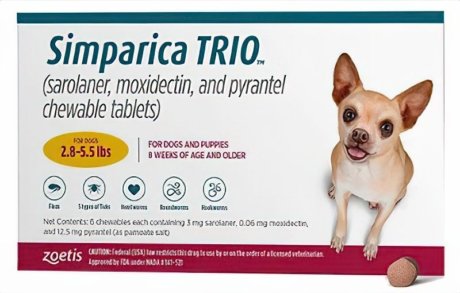Can Dogs Eat Asparagus? Exploring the Safety and Benefits
When it comes to our beloved canine companions, we strive to provide them with the best care and nutrition possible. Our furry friends are like family, and we want to make sure they are safe and healthy. One common question that pet owners often have is, “Can dogs eat asparagus?” In this comprehensive guide, we will delve into the world of asparagus and its suitability for our four-legged friends.
What is Asparagus?
Asparagus is a vibrant green vegetable renowned for its unique flavor and high nutritional value. It’s a great source of vitamins and minerals, including vitamins A, C, and K, as well as folate and dietary fiber. Humans often incorporate asparagus into their diets because of its health benefits.

Asparagus is not only low in calories but also packed with essential nutrients that can support overall health. It’s known for its potential to boost the immune system, aid in digestion, and promote healthy skin and coat.
Is Asparagus Safe for Dogs?
Yes, asparagus is generally safe for dogs when prepared and served correctly. However, there are important considerations to keep in mind:
- Preparation: Asparagus should be cooked and cut into small, manageable pieces for dogs. The tough, fibrous stalks can be difficult for them to chew, potentially posing a choking hazard.
- Plain and Unseasoned: When sharing asparagus with your canine friend, ensure that it’s plain and unseasoned. Avoid adding salt, butter, or any other seasonings that might be harmful to dogs.
- Moderation: As with any treat or new food, moderation is key. Asparagus should only be an occasional addition to your dog’s diet, not a primary source of nutrition.
Can Dogs Eat Asparagus?
Yes, dogs can eat asparagus in moderation. Asparagus is a nutritious vegetable that can provide some vitamins and fiber to a dog’s diet. However, it should be cooked and cut into small, manageable pieces to avoid choking hazards. Additionally, too much asparagus can lead to digestive upset, so it should only be an occasional treat rather than a regular part of their diet. It’s crucial to consult with a veterinarian before introducing any new foods to your dog’s diet to ensure it’s safe for their specific health needs.
Can Dogs Eat Raw Asparagus?
Raw asparagus can be challenging for dogs to digest due to its tough and fibrous texture. While it’s not toxic, feeding your dog raw asparagus may not be the best idea. The fibrous nature of raw asparagus can be difficult for them to chew and may lead to digestive discomfort or even a choking hazard. To ensure your dog’s safety and comfort, it’s advisable to cook asparagus before offering it to them.
Can Dogs Eat Asparagus Cooked?
Yes, dogs can eat cooked asparagus, and it’s generally a safer option compared to raw asparagus. Cooking softens the vegetable, making it easier for dogs to chew and digest. It’s important to prepare the asparagus without any seasonings, sauces, or spices, as these can be harmful to dogs. Plain, cooked asparagus, chopped into small, bite-sized pieces, can be an occasional and healthy treat for your furry friend.
Can Dogs Eat Asparagus Stalks?
While dogs can technically eat asparagus stalks, it’s essential to consider the potential risks. Asparagus stalks are often tougher and fibrous, making them difficult for dogs to chew and digest. They can pose a choking hazard, especially if not prepared properly. If you choose to feed your dog asparagus, it’s safer to use the tender tips and upper parts of the asparagus, which are easier for them to consume.

Can Dogs Eat Asparagus Ends?
As with asparagus stalks, the ends of asparagus are typically tougher and fibrous. While they are not toxic to dogs, they can be challenging for them to chew and digest. To ensure your dog’s safety and minimize the risk of choking or digestive upset, it’s best to trim and use the tender parts of the asparagus, such as the tips and upper portions.
Can Dogs Eat Canned Asparagus?
Canned asparagus is generally not recommended for dogs. Canned vegetables often contain added salt or seasonings, which can be harmful to dogs in excessive amounts. Additionally, the canning process may reduce the nutritional value of the asparagus. It’s safer to opt for fresh, plain, and cooked asparagus when offering it as an occasional treat to your canine companion.
How Much Asparagus Can A Dog Eat?
Dogs can safely eat approximately 1-2 small, bite-sized pieces of cooked asparagus as an occasional treat. However, please remember that individual dogs may have varying tolerances, so it’s essential to monitor their reaction and consult your veterinarian if you have specific concerns about the quantity of asparagus in your dog’s diet.
Potential Benefits of Asparagus for Dogs
Why Consider Asparagus for Your Dog?
Feeding your dog asparagus in moderation can offer several potential health benefits:
- Dietary Fiber: Asparagus is rich in dietary fiber, which can aid in digestion and help regulate bowel movements.
- Vitamins and Antioxidants: Asparagus contains vitamins A, C, and K, as well as antioxidants that support overall health and immunity.
- Healthy Skin and Coat: The vitamin A in asparagus contributes to healthy skin and a shiny coat for your dog.
- Low in Calories: Asparagus is a low-calorie vegetable, making it a suitable option for dogs on a diet.
- Hydration: Asparagus has a relatively high water content, which can contribute to your dog’s overall hydration.
Potential Risks and Considerations
What to Be Cautious About
While asparagus can be beneficial, there are potential risks and considerations to be aware of:
- Digestive Upset: Dogs may experience digestive upset if they consume too much asparagus at once. This can lead to gas, diarrhea, or stomach discomfort.
- Choking Hazard: The tough, woody texture of asparagus can pose a choking hazard, especially if not prepared properly.
- Urinary Odor: Some dogs may produce a distinct odor in their urine after consuming asparagus. This is harmless but something to note.
How to Introduce Asparagus to Your Dog
Tips for Safe Consumption
To ensure your dog enjoys asparagus safely, follow these guidelines:
- Cooking: Always cook asparagus before offering it to your dog. Steamed or boiled asparagus is the best option.
- Cutting: Chop the cooked asparagus into small, bite-sized pieces to prevent choking.
- No Seasonings: Avoid adding any seasonings, sauces, or spices to the asparagus. Plain and unseasoned is the way to go.
- Moderation: As with any new food, introduce asparagus slowly and in moderation to your dog’s diet.
Cooked vs. Raw Asparagus for Dogs
Which is Better?
Cooked asparagus is the safer option for dogs. While they can technically eat raw asparagus, it’s challenging for them to digest due to its fibrous nature. Cooking softens the vegetable, making it easier for dogs to chew and digest.
Recipes for Asparagus Dog Treats
Homemade Treats Your Dog Will Love
If you’d like to treat your dog to some homemade asparagus goodness, here are two simple recipes:
1. Asparagus and Chicken Treats
Ingredients:
- Cooked and chopped asparagus
- Cooked, diced chicken
Instructions:
- Steam or boil the asparagus until tender.
- Chop the cooked asparagus into small pieces.
- Mix the chopped asparagus with the cooked, diced chicken.
- Form the mixture into small, bite-sized treats.
- Bake in the oven until lightly browned.
- Allow the treats to cool completely before serving to your dog.
2. Asparagus and Rice Meal
Ingredients:
- Cooked rice
- Cooked and chopped asparagus
- A small amount of plain, cooked chicken or turkey
Instructions:
- Cook the rice and asparagus separately.
- Mix the cooked rice and asparagus together.
- Add a small amount of plain, cooked chicken or turkey.
- Serve this as an occasional meal to your dog.
Commercial Dog Foods with Asparagus
Exploring Commercial Options
If you prefer the convenience of commercial dog food, you can find options that incorporate asparagus into their recipes. However, it’s crucial to carefully read ingredient labels and choose high-quality brands that prioritize your dog’s health.
Conclusion:
In conclusion, asparagus can be a safe and nutritious addition to your dog’s diet when prepared and served correctly. Remember to exercise caution, introduce it in moderation, and always prioritize your dog’s well-being. As with any dietary changes for your pet, consult your veterinarian to ensure it’s suitable for your specific dog.
So, the next time you enjoy a plate of asparagus, you can share a small, cooked piece with your furry friend as a healthy treat.
Frequently Asked Questions:
-
Can puppies eat asparagus?
Puppies can eat asparagus in moderation, but their dietary needs differ from adult dogs. Consult your veterinarian for guidance.
-
Is canned asparagus safe for dogs?
Canned asparagus may contain added salt or seasonings, making it less suitable for dogs. Stick with fresh, plain asparagus.
-
What should I do if my dog eats a large amount of asparagus?
If your dog consumes a large quantity of asparagus and experiences severe symptoms like vomiting or diarrhea, contact your veterinarian immediately.
-
Can asparagus be given to dogs with food allergies?
Asparagus is generally considered safe for dogs with food allergies, but monitor your dog for any adverse reactions.
-
Can asparagus help with my dog’s bad breath?
Asparagus may help improve your dog’s breath due to its natural ability to neutralize odors, but it should not replace proper dental care.
Recommended:
Can Dogs Eat Cherries: A Comprehensive Guide to Cherry Safety for Dogs
English Cream Dachshund | Breed Profile, Prices, 5 Types, Care Tips, Health





























